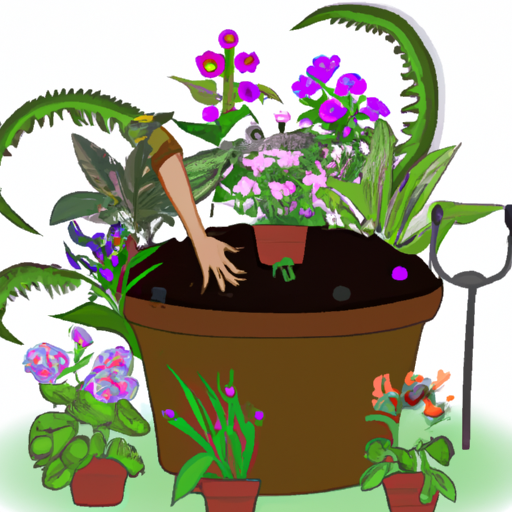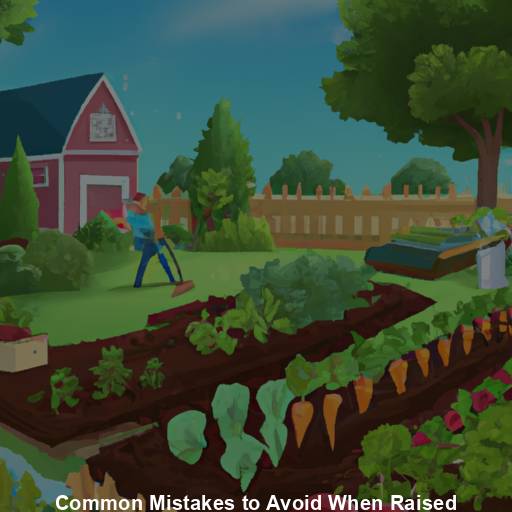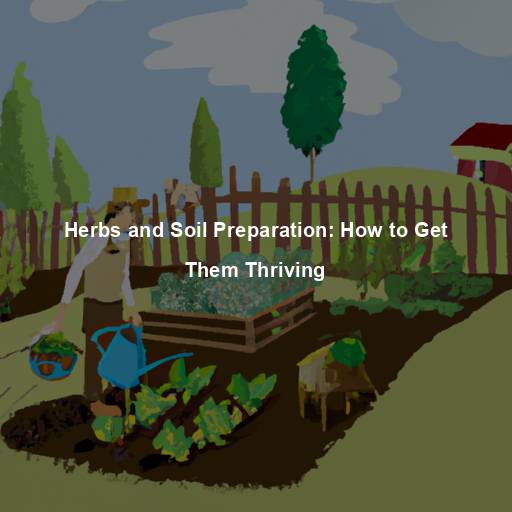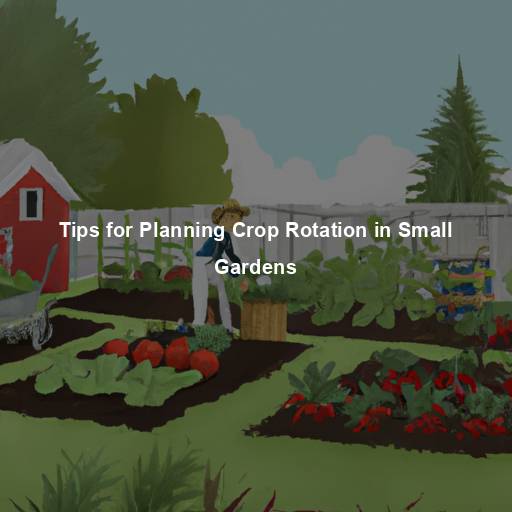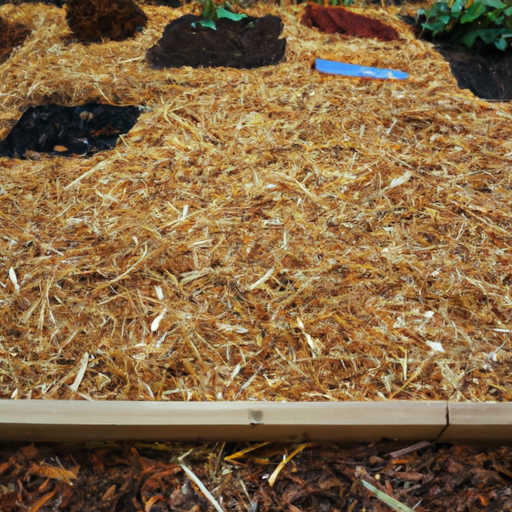Welcome, fellow gardeners! Are you new to organic gardening and unsure of where to start with soil preparation? Don’t worry, we’ve got you covered.
In this article, we’ll guide you through the basics of organic soil preparation so that your plants can thrive in a healthy environment.
Organic soil preparation involves creating a fertile and nutrient-rich foundation for your plants to grow in. By using natural methods instead of synthetic fertilizers, pesticides, and herbicides, you are not only promoting plant health but also protecting the environment from harmful chemicals.
Whether you’re starting a new garden bed or reviving an existing one, following these simple steps will help ensure success in your organic gardening journey.
So let’s dig into the world of organic soil preparation together!
Understanding The Importance Of Organic Soil Preparation
As a Master Gardener, it is essential to understand the importance of organic soil preparation. By taking the time and effort to prepare your soil using natural methods, you can reap numerous benefits such as increased yields and improved plant health.
Neglecting organic soil preparation, on the other hand, has its downsides that cannot be ignored. Soil depletion and poor crop quality are just some of the consequences of not giving enough attention to this vital process in gardening.
As a gardener, it is crucial to recognize the significance of preparing your garden bed with care and consideration for the environment. With proper organic soil preparation techniques, you can ensure that your crops grow strong and healthy while keeping your soil rich and fertile for future use.
Testing Your Soil For Nutrient Levels
Before you start preparing your organic soil, it is important to test it for nutrient levels.
Soil pH testing can help determine the acidity or alkalinity of your soil and provide insight into which plants will thrive in that environment.
A nutrient deficiency diagnosis can also be made through a simple analysis of your soil, allowing you to adjust and amend accordingly.
By taking these steps before planting, you are setting yourself up for success and ensuring that your garden has everything it needs to flourish.
Remember, proper preparation leads to bountiful harvests!
Adding Organic Matter For Improved Soil Health
To further improve the health of your soil, adding organic matter is an essential step.
Composting techniques can help you create a rich and nutrient-dense amendment that will benefit your garden in many ways.
You can use kitchen scraps, yard waste and other materials to create compost, which will add vital nutrients to the soil.
Additionally, green manure options such as clover or alfalfa can be planted during the fallow season to provide nitrogen and other beneficial elements while also preventing erosion.
Incorporating these practices into your gardening routine will not only nourish your plants but also promote healthy microbial activity in the soil, leading to better overall plant growth and resistance to disease.
Using Natural Amendments For Optimal Plant Growth
Now that we have covered the importance of adding organic matter to improve soil health, let’s explore how natural amendments can further enhance plant growth.
One way to do this is through composting benefits. Composting allows for the breakdown of organic material into a nutrient-rich fertilizer that can be added back into the soil. This process not only provides plants with essential nutrients but also improves soil structure and water retention.
In addition to composting, there are other natural pest control methods that can help keep your garden healthy without harmful chemicals.
Companion planting is one such method where certain plants are grown together to deter pests or attract beneficial insects. For example, planting marigolds next to tomatoes can repel nematodes while attracting pollinators like bees.
Another technique is using physical barriers such as row covers or netting to protect plants from pests like caterpillars or birds. Additionally, incorporating predator insects like ladybugs or praying mantises can help control aphids and other harmful bugs in your garden.
By implementing these natural methods, not only will you see an improvement in plant growth and yield, but you’ll also contribute positively to the environment by avoiding harmful chemical pesticides.
Remember that gardening is a continuous learning experience, so don’t be afraid to try new techniques and adjust as needed for optimal results!
Maintaining And Caring For Your Organic Garden Soil
Did you know that healthy soil can contain up to 10 billion microorganisms in just one teaspoon? That’s right, your garden soil is a thriving ecosystem full of life! As a Master Gardener, it’s important to care for and maintain this biodiversity.
Here are some tips:
– Use cover crops to protect the soil and add organic matter
– Rotate crops annually to prevent depletion of nutrients
– Add compost regularly to improve soil structure and fertility
– Avoid tilling too deeply as it can disrupt the delicate balance of soil organisms
It’s also crucial to incorporate composting techniques into your gardening routine. Not only does it divert waste from landfills, but it also provides valuable nutrients back into the soil.
Experiment with different methods such as vermicomposting or sheet composting to find what works best for you and your garden.
Remember, healthy organic soil means healthier plants and ultimately a more bountiful harvest. So take care of your soil like the living organism it is!
Frequently Asked Questions
What Are The Benefits Of Using Organic Soil Preparation Over Conventional Methods?
When it comes to gardening, using organic soil preparation can provide numerous benefits not found in conventional methods. By opting for sustainable practices, you’re helping to preserve the environment for future generations.
Not only that, but healthier plants are a direct result of nourishing the soil with natural elements rather than harsh chemicals. As a Master Gardener, I always recommend starting with high-quality compost and adding in things like bone meal or fish emulsion for added nutrients.
These types of organic amendments will benefit your garden in more ways than one – from promoting healthy root growth to enriching the soil structure over time. So if you want to see your garden thrive while also doing your part for the planet, consider making the switch to organic soil preparation today!
How Often Should I Test My Soil For Nutrient Levels?
To ensure your plants are getting the nutrients they need, it’s important to regularly test your soil for nutrient levels.
Soil testing frequency will depend on several factors such as the type of plant you’re growing and the condition of your soil.
As a Master Gardener, I recommend testing at least once a year or every other year using reliable nutrient management techniques such as sending samples to a reputable lab or using home test kits.
By regularly monitoring your soil’s nutrient levels, you’ll be able to adjust fertilization and amendment practices accordingly to maintain healthy plant growth.
Can I Use Compost From My Kitchen Scraps As Organic Matter For My Soil?
Yes, you absolutely can use compost from your kitchen scraps as organic matter for your soil! Composting is an excellent way to reduce waste and create nutrient-rich soil amendments for your garden.
To get started, gather up your fruit and vegetable scraps, coffee grounds, eggshells, grass clippings, leaves, and other plant-based materials. You’ll also need a compost bin or pile where these materials can break down over time into rich humus that will nourish your plants. Check out some DIY compost bin ideas online to find the perfect setup for your space.
Remember to turn the pile regularly and keep it moist but not too wet. With these composting tips in mind, you’ll be on your way to creating healthy soil for all of your gardening needs!
Are There Any Natural Amendments That Can Help Control Pests And Diseases In My Garden?
Ahoy there, fellow green thumbs! If you’re looking for ways to keep those pesky pests and diseases at bay in your garden without resorting to harmful chemicals, then fear not.
There are plenty of natural amendments that can help control these unwanted visitors. One effective method is companion planting – the art of growing certain plants together that have a beneficial relationship with one another.
For example, marigolds repel nematodes while attracting beneficial insects like ladybugs. Another option is using natural pest control methods such as neem oil or diatomaceous earth.
Trust me, as a Master Gardener myself, I know firsthand how important it is to maintain a healthy ecosystem in our gardens. So don’t let those pesky bugs get the best of you – give these natural methods a try!
Is It Necessary To Rotate Crops In An Organic Garden, And If So, How Often Should I Do It?
Crop rotation frequency and crop diversity strategies are essential to maintain a healthy organic garden. Crop rotation helps prevent the buildup of pests, diseases, and soil-borne pathogens by alternating crops in different areas each year.
The frequency of crop rotation depends on many factors such as climate, soil type, and plant varieties. As a general rule of thumb, it is recommended to rotate crops every 2-3 years for optimal results.
Furthermore, incorporating diverse crops into your garden can improve soil health, attract beneficial insects and pollinators while reducing pest pressure. Consider planting cover crops or companion plants that fix nitrogen or repel harmful bugs during offseasons to enrich the soil naturally.
Remember, implementing these simple practices will help you achieve long-term success in your organic gardening journey!
Conclusion
In conclusion, using organic soil preparation can have numerous benefits for your garden. Not only does it promote healthy plant growth, but it also helps to reduce the amount of harmful chemicals in our environment.
It’s important to regularly test your soil for nutrient levels and amend accordingly with natural materials like compost from kitchen scraps or other organic matter. When it comes to controlling pests and diseases in an organic garden, there are a variety of natural amendments that can be used such as neem oil, garlic spray, and diatomaceous earth. And don’t forget about crop rotation!
This practice can help prevent the buildup of certain pests and diseases in the soil, leading to healthier plants overall. So get out there and start preparing your organic soil today – your plants (and the planet) will thank you! As Master Gardeners say, ‘Organic gardening is not just a hobby – it’s a way of life!
By incorporating these practices into our daily routines, we can create beautiful gardens while also promoting sustainability and environmental consciousness. So let’s dig in and get started on creating lush green spaces filled with vibrant blooms and delicious produce – all grown with love using organic soil preparation techniques!
